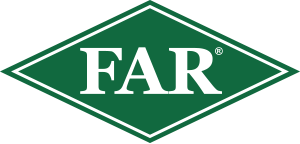Arable farms will need to have an FWFP if they have 20 hectares or more of land in arable crops. Plans must be developed (by the farmer or a consultant), then ‘certified’ by an accredited certifier and regularly audited. Regional Councils will be in charge of managing the FWFP system in their region.
FWFPs are intended to provide flexibility to respond to the challenges and values of your local freshwater environment in a way which best suits your farm system. While we have now seen the regulations, we still don’t really know what sort of impact the FWFP system will have on arable growers. There are a couple of reasons for this:
Your FWFP must be linked to your local catchment context. So, the extent of the actions required by your plan will very much depend on the current state of your catchment and the future goals of freshwater management in your catchment. In many instances, this is still being worked through by regional councils.
FWFPs form part of the wider resource management regulatory system. While FWFPs are mandatory, regional councils can include other methods of environmental management in their plans for farming activities (such as resource consents) if they feel it necessary. Councils are working through their plan development processes at the moment, so this may vary from region to region We won’t know the proposed outcomes until towards the end of next year.
FAR will be assisting arable growers with their FWFPs by providing templates and guidance specific to arable farming, and by working with councils and other industry bodies to provide support to growers in developing the plans.
Have your say on the future of freshwater management in your local catchment.
Regional councils are in the process of updating their policy statements and plans to give effect to national regulations that were passed in 2020 (NPS-FM 2020). All councils are required to have notified new or updated policy statements and plans by the end of 2024. As part of the plan development process, councils are seeking ongoing engagement with local communities about their aspirations for freshwater management and the best methods to achieve these.
While voluntarily engaging with the regional council may not be high on many farmers’ agendas, it’s crucial that the plan-makers hear the rural voice loud and clear in their engagement processes. FAR will be engaging at a regional level with councils to advocate on behalf of arable farmers, but we strongly encourage as many farmers as possible to get involved at a local level and make their voices heard in their own catchments. Alternatively, you could get involved via a catchment group or local industry group. FAR Environmental Policy Advisor Hannah Ritchie (Hannah.ritchie@far.org.nz) can provide advice and support to any growers or groups wanting to engage with their council but unsure of where to start or what to say.
Check out your council’s website (see table below) for information on the plan-making progress and current consultations in your region:
Name |
Link |
|
Northland |
The Freshwater Plan |
The Freshwater Plan - Northland Regional Council (nrc.govt.nz) |
Auckland |
Auckland Unitary Plan |
|
Waikato |
Freshwater Policy Review |
|
Bay of Plenty |
Updating regional freshwater rules |
|
Gisborne |
Tairāwhiti Resource Management Plan |
|
Hawkes Bay |
Kotahi Plan Change |
The Kotahi Plan | Hawke's Bay Regional Council (hbrc.govt.nz) |
Horizons |
Oranga Wai |
|
Taranaki |
Natural Resources Plan for Taranaki |
Natural Resources Plan for Taranaki / Taranaki Regional Council (trc.govt.nz) |
Greater Wellington |
Proposed Natural Resources Plan |
|
Marlborough |
Proposed Marlborough Environment Plan |
|
Canterbury |
Regional integrated planning framework development |
|
Otago |
Land and Water Regional Plan |
|
Southland |
Southland Land and Water Plan |

